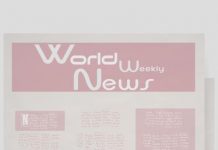Gabon: A Country of Riches and Paradoxes
Introduction
In recent hours, the name of Gabon has become the leader of the world scene after the coup d’état that took place in this country located in Central Africa, near Niger.
Yesterday, Wednesday, the military carried out a coup d’état against President Omar Bongo shortly after the official results of the August 26 presidential election were announced and confirmed his victory for a third term.
Notable Things About Gabon
Below are notable things you should know about oil-rich Gabon.
55 years ago
First, there is no doubt that this coup did not happen out of nowhere, since the Bongo family has been in power for over 55 years. Since the country gained independence from France in 1960, it has been ruled by only three presidents.
It was led by Omar Bongo Onjimba for over 41 years, until the posthumous election of his son Ali in 2009.
Respected for his mediation in many African crises, Omar Bongo was the backbone of the so-called “French Africa”, which is a system of political and commercial relations between Paris and its former colonies on the Continent.
But once in power, his son Ali allegedly distanced himself from the former colonial power.
Bob Marley… and romance!
But there are also beautiful “artistic” and spherical paradoxes in the country.
In January 1980, the famous reggae legend Bob Marley visited the country and gave his first concert in Africa.
This happened after Pascaline, one of the daughters of Omar Bongo, started a relationship with the famous Jamaican star.
She invited him to perform in Gabon for her father’s birthday party.
Famous football player
When it comes to football, international superstar Pierre-Emerick Aubameyang is the most famous player in the country.
The 34-year-old striker, who recently signed with French Ligue 1 club Marseille, played three years for Lille, Monaco, and Saint-Étienne, as well as Borussia Dortmund and Arsenal after training with Milan.
Oil, wood and manganese
But far from the world of glory, Gabon is one of the richest African countries in terms of GDP per capita ($8,820 in 2022) thanks to oil, timber, and manganese, as well as a small population (2.3 million people).
It is also one of the first producers of black gold in sub-Saharan Africa.
Oil accounted for 38.5% of GDP and 70.5% of total exports in 2020, according to the World Bank.
However, the economy, which the authorities cannot diversify sufficiently, is still largely dependent on hydrocarbons, with one in three people living below the poverty line, according to figures announced at the end of 2022 by the World Bank.
Carbon absorbent
In addition, according to the World Bank’s description, this country is classified as a major carbon sink.
Forests cover 88% of the 268,000 square kilometers and the country is a leader in net zero emissions initiatives, especially as a result of efforts to reduce emissions and conserve its vast rainforests.
It has a rich ecosystem, and its national parks are home to endemic species and iconic mammals such as the forest elephant, gorilla, chimpanzee, cheetah, and many species of pangolin.
Plant with psychoactive substances
Among the natural wealth, the famous Iboga plant, containing psychotropic substances, floats to the surface.
It is an endemic shrub of the tropical forests of Central Africa.
50 years ago, this herb went beyond its traditional use due to the medicinal properties of ibogaine, one of its active ingredients, which has anti-addictive properties.
In Gabon, it is used as crushed bark extracted from the stems in poiti ceremonies, a traditional ritual.
But about fifty years ago, the plant went beyond its traditional use due to the medicinal properties of ibogaine, one of its active ingredients, which has anti-addiction properties.



